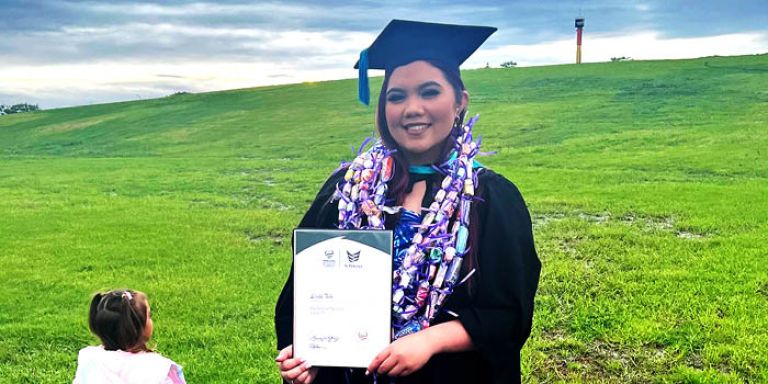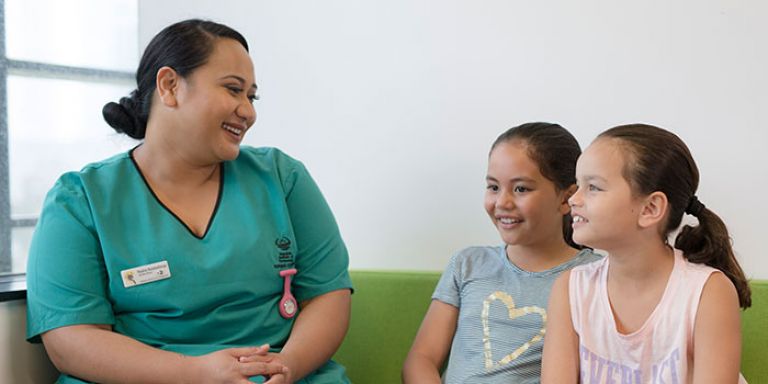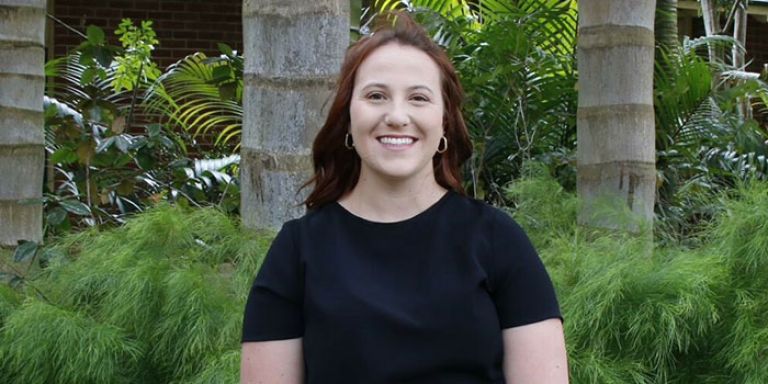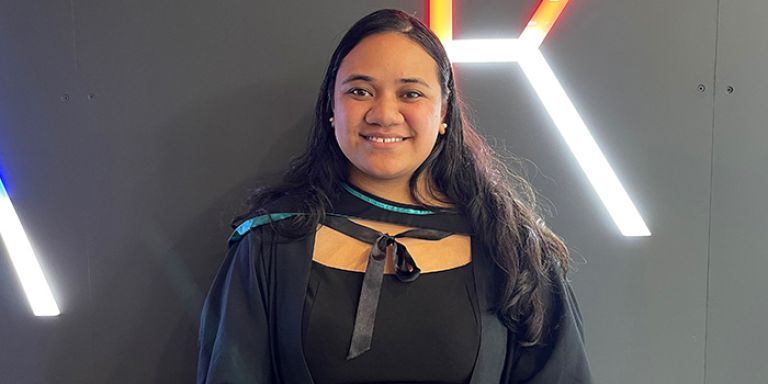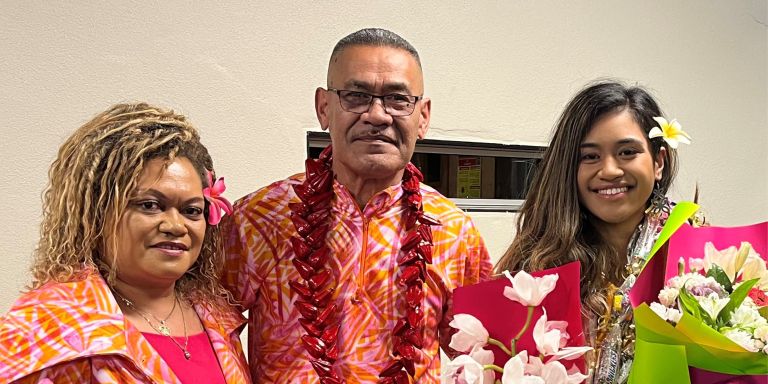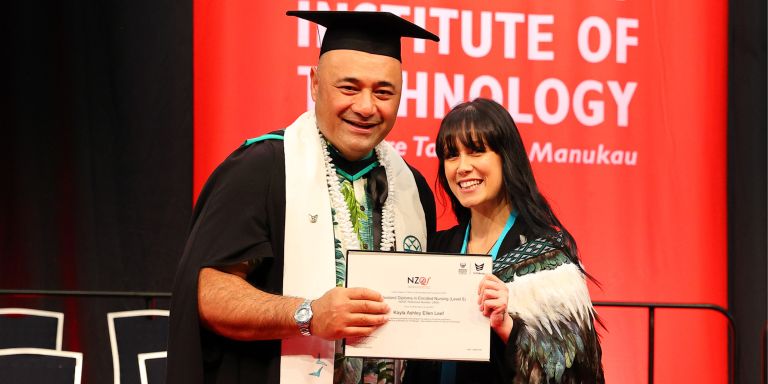Programme highlights
Launch your career as a nurse in an essential industry.
Study this diploma to become a highly-skilled enrolled nurse. You will gain the necessary critical skills, learn in our modern clinical learning suite, and get the chance to work with patients in a range of healthcare settings.
When you graduate, you’ll be ready to sit the Nursing Council of New Zealand State Examination and apply for registration as an enrolled nurse in New Zealand.
For FAQ’s specific to the DEN, please click here.
If you are Māori or Pasifika, find out how you could be supported on your MIT journey with Te Ara Oranga.
Please note: Vaccination for COVID-19 is no longer an expectation for workers (including student nurses) in the public health system. Health NZ published a notice on 19 December 2024 stating the Pre-employment COVID-19 Vaccination Policy is withdrawn. This means that while getting vaccinated for COVID-19 is still highly recommended, it won’t be expected of student nurses. Students in nursing programmes at MIT will no longer be required to be vaccinated for COVID-19 or provide proof of vaccination to MIT. Other immunisation requirements are still in place (please see your programme information for details). To protect yourself and others, it is important to stay up to date with the latest COVID-19 vaccines as the virus changes, follow the latest immunisation recommendations, and be aware of any new infectious disease risks in your area.
Entry requirements
The School of Nursing encourages applicants from diverse backgrounds who want to be employed in healthcare. If you believe you meet the following entry criteria with alternative evidence, please contact us to assess your eligibility for this programme.
Applicants must meet the following entry requirements:
Academic requirements
NCEA Level 2 which must include:
- 10 credits in Level 1 Mathematics/or Numeracy
- 12 credits in Level 2 Science rich subjects
OR
- New Zealand Certificate in Study and Employment Pathways (Level 3) Nursing and Health Studies
For examinations other than NCEA (e.g. International Baccalaureate, Cambridge Examination), applications will be assessed for academic entry equivalency.
Alternative requirements
Applicants who are unable to evidence that they meet Academic Requirements, but who can demonstrate acquired skills for tertiary study gained through study, work and/or life experience, may be approved for alternative entry. This may include Recognition of Prior Learning.
Additional requirements
In addition, applicants must also meet the following programme specific requirements:
Prior to enrolment (at time of application):
- A self-declaration, providing information regarding:
-
- Criminal convictions.
Applicants are required to indicate whether they have been convicted of, or have been prosecuted for, a criminal offence. Under the Health Practitioners Competence Assurance Act 2003 some types of criminal conviction may result in the NCNZ refusing to register a person as an enrolled nurse.
- Criminal convictions.
-
- Mental and physical conditions.
- Applicants are required to indicate if they have had any mental and/or physical conditions, to demonstrate that they are fit for practice as a registered nurse. Under the Health Practitioners Competence Assurance Act 2003 some types of physical or mental conditions may result in the NCNZ being unable to register a person as an enrolled nurse. A medical report may also be requested, where evidence of good health is required, as per NCNZ requirements
- Any learning disabilities or challenges that might affect participation in the programme; this will be used to activate support services
- Personal statement, should outline why the applicant has chosen nursing as a career, demonstrate communication skills, describe personal qualities and self-responsibilities in relation to relevant aspects from their life experiences, their learning and practice which will enhance the application.
- Mental and physical conditions.
- At least two written references.
The references are required to demonstrate the applicant has good character and personal attributes and that the applicant is sufficient for safe and effective practice as an enrolled nurse, as required by the Children’s Act 2014. One will be a personal report and one from your school or most recent employer. Referees may not be a family member, partner or flatmate.
Applicants may be required to attend an interview to ensure they will meet the Nursing Council of New Zealand requirements for registration on completion of the programme.
- Successful applicants will be required to complete a New Zealand Police Consent to Disclosure of Information form. The form will be sent to the Police Licensing and Vetting Service and returned in confidence to the Head of School – Nursing. Information on the Vetting Service is available from the New Zealand Police website.
- Complete a safety check.
The safety check will be required to ensure compliance with the provisions of the Children’s Act 2014. This may include, but is not limited to:- Reference checks
- Police check
- A risk assessment
- CV which provides an account of all experience – part time, full time and voluntary, including care of own children for the preceding five years
Unsatisfactory results arising from the full safety checking process may result in the ākonga being declined entry or withdrawn from the programme of study.
During the programme (after commencement of study), it is a requirement that ākonga remain in good standing with the nursing department, this means remaining “trouble free” for the duration of your studies, therefore:
- Ākonga are required to:
- Declare any pending or new convictions arising during any stage throughout the entire enrolment period of the programme. A conviction or failure to declare a conviction may result in the ākonga being immediately withdrawn from the programme.
- Ākonga will be required to:
- Provide evidence of immunisation status to secure clinical learning experiences, which may be required by clinical learning experience providers. Clinical learning experiences are an integral part of this programme and ākonga must complete these elements to successfully achieve their qualification. Clinical learning experiences cannot be guaranteed without this evidence, as per clinical access agreements with clinical learning experience providers.
English requirements
Ākonga are required to demonstrate they can communicate effectively to meet the theory and clinical learning experience requirements to complete the DEN; and to demonstrate they can communicate in and comprehend English sufficiently to protect the health and safety of the public (sections 16 a and b, HPCA Act, 2003).
If English or te reo Māori is not the applicant’s first language, applicants must provide evidence they have the necessary English language proficiency as outlined in the NZQA table for English Proficiency Outcomes.
- IELTS 6.5 Academic (no lower than 6.5 in any subtest and must be taken from a single IELTS Test Report Form and are valid for two years from the date of the test)
OR
- OET C+ minimum across all bands in one sitting.
Note: The English Language requirements for this programme are higher than the minimum set by NZQA, therefore; applicants who have met New Zealand University Entrance may be required to provide evidence of English Language proficiency.
PTE is not accepted by Nursing Council of New Zealand for English language proficiency.
The Head of School – Nursing can request at any point an IELTS or equivalent English language test be undertaken by an ākonga where English is a second language and where ākonga are experiencing communication difficulties in theory and/or clinical learning experience courses during the DEN programme. This additional testing will be at the cost of ākonga. Ākonga must achieve a minimum as set out above. Failure to demonstrate English language proficiency at this level will result in ākonga being withdrawn from the programme (HPCA ACT 2003).
Special & discretionary admission
Any ākonga who is 20 years of age or older and has not reached the general admission requirements for their intended programme is eligible for Special Admission. MIT works with the ākonga to ensure they are prepared for their intended programme. Any ākonga who is not yet 20 years of age and has not reached the general admission requirements for their intended programme may be eligible for Discretionary Admission. In assessing whether to grant Discretionary Admission, the delegated authority focuses on the applicant’s level of preparedness for their intended programme.
Give yourself credit with Recognition of Prior Learning (RPL)
Did you know you can use the knowledge and experience you already have to your advantage?
Your previous work experience and on-the-job skills, volunteering, professional development, and other providers’ qualifications can be recognised as prior learning, matched against credits in our courses, and put towards your qualification – potentially saving you money and possibly helping you to complete your qualification faster Learn more.
Programme structure
You will need to complete the below nine courses (180 credits):
Level 4
Level 5
Level 6
Do you want to study a single course, without enrolling into the full programme?
Courses within some of our programmes may be offered as an individual Certificate of Proficiency (COP). Programme entry requirements and course fees apply. For more information, please speak to our friendly Ask Me! team.
Further training or study
- Bachelor of Nursing (Level 7)
- Bachelor of Nursing Pacific (Level 7)
- Bachelor of Nursing Maaori (Level 7)
Career opportunities
A range of potential jobs as an enrolled nurse. For potential salaries visit careers.govt.nz.



